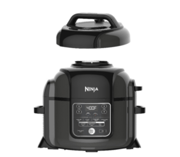How one word could reveal a lie—and what it means for your daily life
By
Veronica E.
- Replies 0
We’ve all experienced moments when a story just doesn’t sit right.
Maybe it’s a relative brushing off a question with a quick “never happened,” a politician making a sweeping promise that sounds too good to be true, or a customer service rep giving answers that feel just a little too scripted.
In those moments, your gut instinct kicks in—something feels off, but you can’t quite put your finger on why.
According to trial lawyer Jefferson Fisher, that instinct may be more reliable than you think.
And the good news? You already have a built-in “lie detector”—as long as you know what to listen for.

In a recent interview on the Diary of a CEO podcast, Fisher shared one of the simplest tools he uses in the courtroom to spot dishonesty: listening for extreme words.
Specifically, be wary of statements that include "never" or "always."
For example, if someone says, “I never text while driving,” that strong absolute might raise a warning sign.
“Never is an extreme,” Fisher explains, “and extremes are a dead giveaway that someone might not be telling the truth.”
It’s not that the person is always lying—but very few of us can say with total honesty that we never do something, especially when it’s common behavior.
People who are nervous or trying to hide something often overcompensate.
Using big, absolute words makes their denial sound stronger and more convincing—but ironically, it can have the opposite effect.
It’s part of our natural desire to sound trustworthy, even when the facts are shaky.
Think about how many times we say, “I always take out the trash,” or “I never miss a birthday,” even when we know we’ve occasionally forgotten.
These exaggerations are common, but they can be revealing.
Fisher also notes that speed can be another clue.
If someone answers too quickly, without pausing to think, they may not be accessing a memory—they may just be eager to move past the question.
Honest people tend to take a moment to recall details before responding, especially when they’re trying to be accurate.
If you suspect someone isn’t being truthful, Fisher suggests staying calm and simply repeating the question slowly.
For instance, if someone says, “I never text while driving,” you might follow up with, “You never text while driving? Not even once?”
This soft approach often encourages the other person to reflect and offer a more honest answer—without feeling attacked.
Many times, you’ll hear a more realistic response: “Well… maybe once or twice.”
This technique isn’t about confrontation.
It’s about creating space for a real conversation—especially when someone may be embarrassed or anxious.
Interestingly, lying doesn’t just affect relationships.
It may take a toll on self-esteem too.
A study from the University of Twente in the Netherlands found that participants who recalled lying—even once—reported lower self-worth than those who remembered being truthful.
In short: telling the truth may not always be easy, but it might make us feel better in the long run.
As we get older, we’ve had our share of experience navigating tall tales, half-truths, and occasional fibs.
Whether it’s with family, in everyday interactions, or when dealing with services or sales pitches, being able to spot the signs of dishonesty can help us make more informed choices—and protect ourselves.
At the same time, fostering honesty in our own communication helps strengthen trust, understanding, and connection with the people who matter most.
Read next: Unlock the secrets: The 80-calorie snack with surprising benefits

Have you ever caught a fib using one of these techniques? Or maybe you’ve caught yourself saying “always” or “never” in a moment of stress. We’d love to hear your stories, tips, or questions. Add your voice in the comments and let’s help each other foster honesty, curiosity, and clarity in our conversations—one step at a time!
Maybe it’s a relative brushing off a question with a quick “never happened,” a politician making a sweeping promise that sounds too good to be true, or a customer service rep giving answers that feel just a little too scripted.
In those moments, your gut instinct kicks in—something feels off, but you can’t quite put your finger on why.
According to trial lawyer Jefferson Fisher, that instinct may be more reliable than you think.
And the good news? You already have a built-in “lie detector”—as long as you know what to listen for.

Learning to recognize subtle verbal cues can help you navigate everyday conversations with more clarity and confidence. Image Source: YouTube / University of Rochester.
The word that could signal a lie
In a recent interview on the Diary of a CEO podcast, Fisher shared one of the simplest tools he uses in the courtroom to spot dishonesty: listening for extreme words.
Specifically, be wary of statements that include "never" or "always."
For example, if someone says, “I never text while driving,” that strong absolute might raise a warning sign.
“Never is an extreme,” Fisher explains, “and extremes are a dead giveaway that someone might not be telling the truth.”
It’s not that the person is always lying—but very few of us can say with total honesty that we never do something, especially when it’s common behavior.
Why liars lean on absolutes
People who are nervous or trying to hide something often overcompensate.
Using big, absolute words makes their denial sound stronger and more convincing—but ironically, it can have the opposite effect.
It’s part of our natural desire to sound trustworthy, even when the facts are shaky.
Think about how many times we say, “I always take out the trash,” or “I never miss a birthday,” even when we know we’ve occasionally forgotten.
These exaggerations are common, but they can be revealing.
Also read: A body language guru reveals the instant trick to spotting liars
Another subtle sign: how fast they answer
Fisher also notes that speed can be another clue.
If someone answers too quickly, without pausing to think, they may not be accessing a memory—they may just be eager to move past the question.
Honest people tend to take a moment to recall details before responding, especially when they’re trying to be accurate.
Also read: The two mistakes that could cost you even if police only give a warning
A gentler way to get the truth
If you suspect someone isn’t being truthful, Fisher suggests staying calm and simply repeating the question slowly.
For instance, if someone says, “I never text while driving,” you might follow up with, “You never text while driving? Not even once?”
This soft approach often encourages the other person to reflect and offer a more honest answer—without feeling attacked.
Many times, you’ll hear a more realistic response: “Well… maybe once or twice.”
This technique isn’t about confrontation.
It’s about creating space for a real conversation—especially when someone may be embarrassed or anxious.
Also read: Sleeping this way might be damaging your health—here's what doctors want you to know!
Can lying hurt your health?
Interestingly, lying doesn’t just affect relationships.
It may take a toll on self-esteem too.
A study from the University of Twente in the Netherlands found that participants who recalled lying—even once—reported lower self-worth than those who remembered being truthful.
In short: telling the truth may not always be easy, but it might make us feel better in the long run.
Everyday tips for spotting (and avoiding) lies
- Watch for absolutes: Words like “never,” “always,” “everyone,” or “no one” are rarely 100% true.
- Notice the speed: A too-fast answer might skip over real memory.
- Ask open-ended questions: These encourage thoughtful, detailed responses.
- Stay calm and curious: A gentle follow-up often leads to more honest answers.
- Check in with yourself: Pay attention to your own language—do you ever exaggerate for effect?
As we get older, we’ve had our share of experience navigating tall tales, half-truths, and occasional fibs.
Whether it’s with family, in everyday interactions, or when dealing with services or sales pitches, being able to spot the signs of dishonesty can help us make more informed choices—and protect ourselves.
At the same time, fostering honesty in our own communication helps strengthen trust, understanding, and connection with the people who matter most.
Read next: Unlock the secrets: The 80-calorie snack with surprising benefits
Key Takeaways
- A trial lawyer revealed that liars often use extreme words like "never" or "always" when trying to cover up the truth.
- Quick, unconsidered answers can also be a sign that someone is lying, as they haven’t taken the time to recall the true events.
- Repeating the question slowly can sometimes prompt the person to retract their original answer and admit to the lie.
- Research has shown that lying is linked to lower self-esteem, with participants who recalled lying experiencing lower self-worth compared to those who were truthful.
Have you ever caught a fib using one of these techniques? Or maybe you’ve caught yourself saying “always” or “never” in a moment of stress. We’d love to hear your stories, tips, or questions. Add your voice in the comments and let’s help each other foster honesty, curiosity, and clarity in our conversations—one step at a time!






